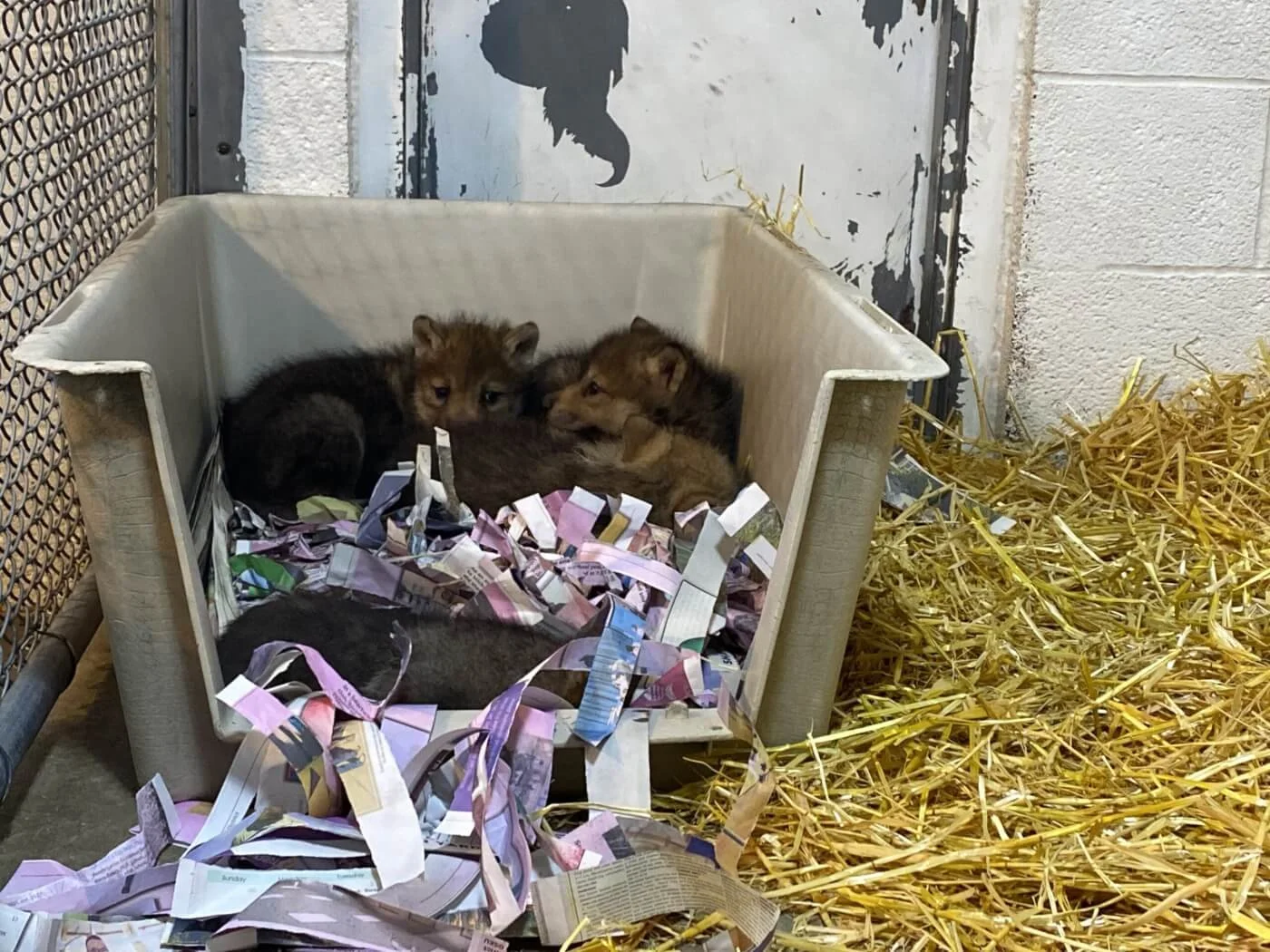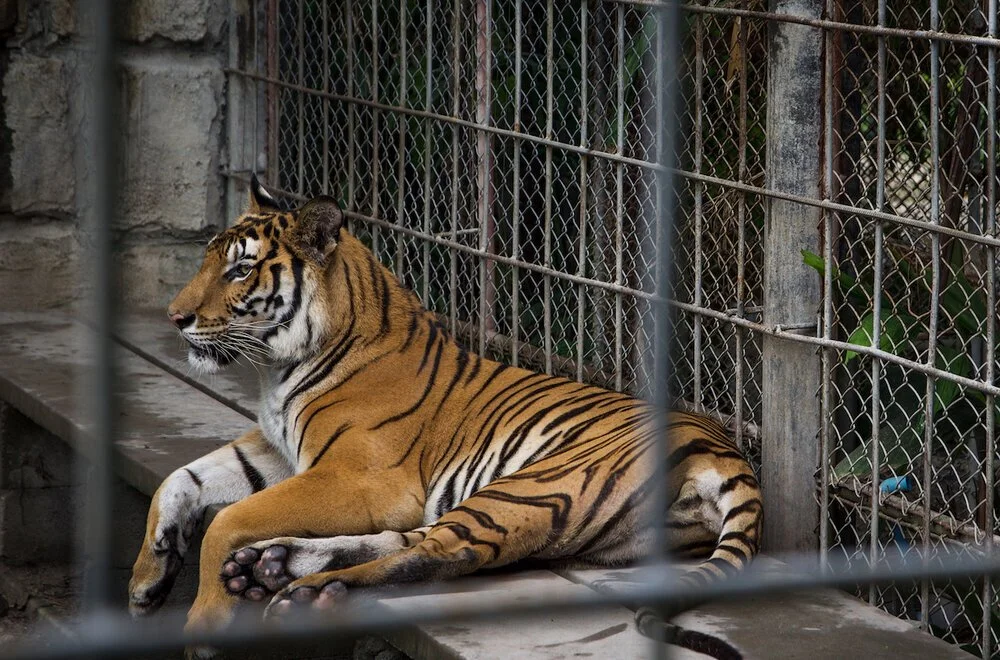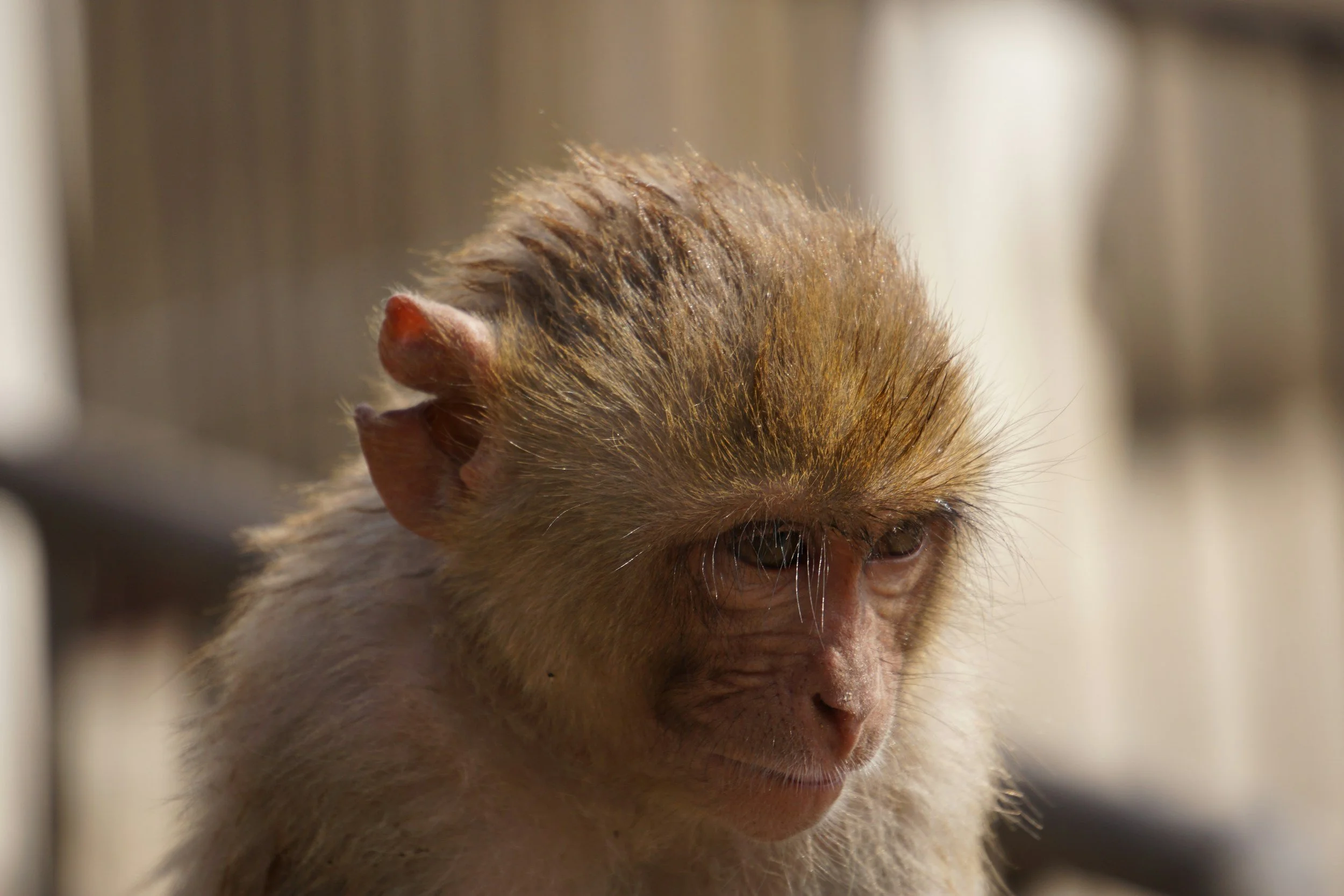Bear Country USA Workers Used Chainsaws and Bottle Rockets to Steal Bear Cubs From Their Mothers, Undercover Footage Shows
The roadside zoo in South Dakota is facing animal abuse allegations.
Bear cubs were taken from their nurturing mothers in order to be displayed for visitors. Credit: PETA
A roadside zoo in South Dakota is facing allegations of animal abuse after an undercover investigation revealed that workers “traumatized” bears and wolves.
One of the main allegations focuses on how workers took infant animals from their nurturing mothers at just 1 to 2 months old in order to be put on display.
Workers were filmed using chainsaws and bottle rockets to scare mother bears out of their dens. A worker is heard explaining that this process is “so the mothers can’t hear the babies screaming”, before the infant animals are put on display for paying visitors.
On the undercover recording, staff members described the process as “stealing children” and “a little bit bad on the morals”. A supervisor instructed workers in an email to not discuss the process with the public, advising them to “refrain from going into … detail that could be offensive to the public. … guests do not need to know the entirety of the truth”.
In nature, cubs stay with their mothers for at least 16 months, says People for the Ethical Treatment of Animals (PETA), who released the investigation. But Bear Country U.S.A. is accused of forcibly separating infants from their mothers when they’re no more than 8 weeks old.
In one incident, young cubs were kept in cardboard boxes and were exhibited to a group of children, despite the supervisor acknowledging that the animals were “scared”.
Another incident recorded the same supervisor instructing the undercover PETA investigator to “kick [the cubs] down”, and to “pinch their nose as hard as you f***ing can” if the animals bite.
The investigation also alleges that animals at the roadside zoo were denied adequate veterinary care, including a thin 17-year-old fox named Mama who appeared to be in pain and was missing an extensive amount of fur. When the supervisor eventually sought care for her nearly 11 weeks after PETA’s investigator raised concerns, a veterinarian euthanized her and found that she had widespread cancer.
Mama the 17-year -old fox who was euthanized after allegedly not receiving adequate veterinary care. Credit: PETA
“Screaming cubs and mourning mothers are Bear Country U.S.A.’s bread and butter,” PETA’s Director of Captive Animal Welfare, Debbie Metzler, said in a statement. “Generation after generation of bear families are torn apart by the sordid roadside zoo industry, and PETA urges everyone to stay away from any business that uses vulnerable baby animals as props.”
PETA says it has now submitted evidence to several government departments including local law enforcement and the U.S. Department of Agriculture, seeking investigations into Bear Country U.S.A.’s apparent violations of laws regarding animal welfare, neglect, endangered species, and worker safety.
The Problem With Roadside Zoos
Animal welfare groups say that conditions at roadside zoos are often dismal, with animals confined to small and barren enclosures. The lack of space and unnatural conditions can cause many captive animals to suffer psychological problems, including what is often referred to as “zoochosis”. Animals suffering from zoochosis will often rock, sway, or pace endlessly, and some can even resort to hurting themselves by chewing on their limbs or pulling out their fur or feathers.
Credit: Amy Jones/Moving Animals
Opponents also condemn the number of roadside zoos that have labelled themselves as a “sanctuary” or “rescue”, despite keeping the animals in squalid conditions and forcing them to pose for photos and interact with tourists as part of “hands-on” displays.
However, public attitudes towards keeping animals in captivity have shifted in recent years, with more and more people opting to boycott roadside zoos. Instead, many people are choosing to instead visit reputable sanctuaries where animals can live freely in more natural environments.
This rise in public awareness about unethical animal captivity was reflected with the passing of the landmark Big Cat Public Safety Act, which was signed into law late last year. The bill banned the private ownership of big cats, and restricted public contact with them including cub handling.
We Have A Favor To Ask…
Species Unite amplifies well-researched solutions to some of the most abusive animal industries operating today.
At this crucial moment, with worldwide momentum for change building, it’s vital we share these animal-free solutions with the world - and we need your help.
We’re a nonprofit, and so to keep sharing these solutions, we’re relying on you - with your support, we can continue our essential work in growing a powerful community of animal advocates this year.
More stories:
Species Unite
A collection of stories of those who fight the good fight on behalf of animals.






As plant-based diets gain scientific backing, critics say the meat industry is deploying coordinated tactics to shape public opinion.